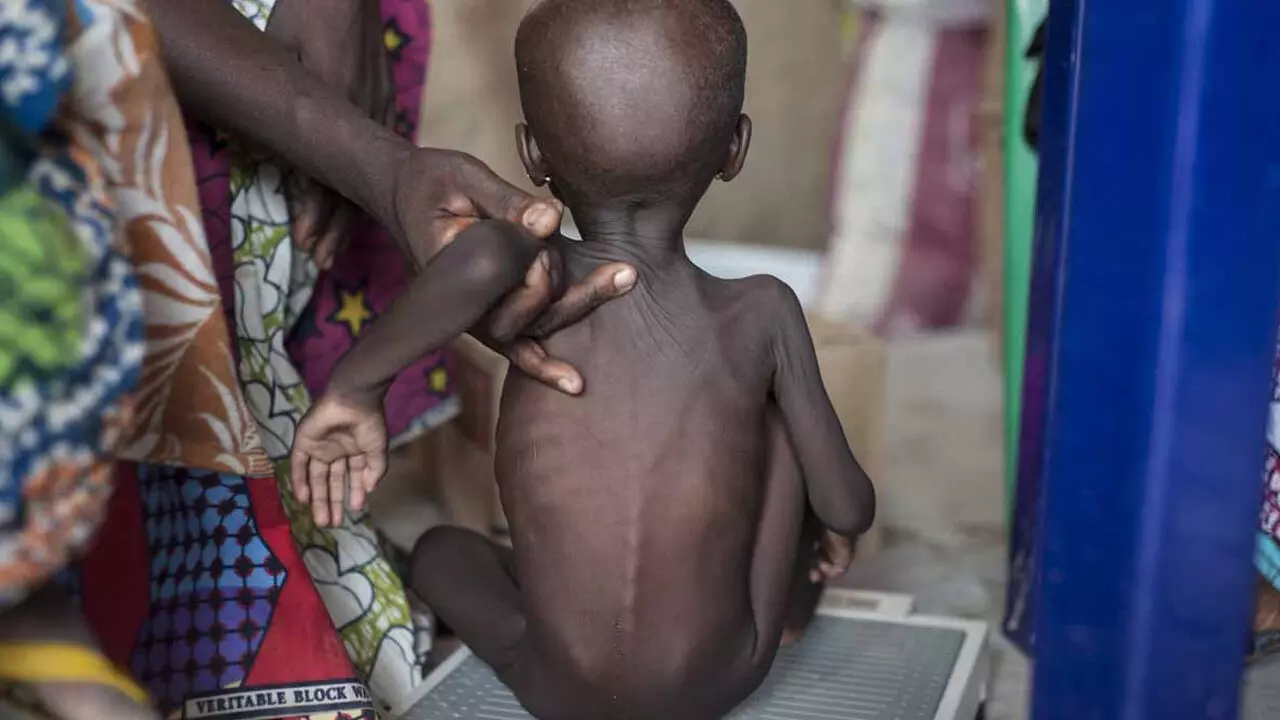- Home
- /
- Features/Spotlight
- /
- That we can defeat...

According to March to May 2023 Cadre Harmonise (CH) analysis report food insecurity in Nigeria has been on the rise in recent years.
According to experts Cadre Harmonise is an early warning tool aimed at timely sharing relevant and reliable information on the risks of worsening food security situation in vulnerable areas.
They say Cadre Harmonise is the unified tool for analysis of acute food and nutrition insecurity in such places as the Sahel and West African Region.
The report says millions of Nigerians struggling to access food on a daily basis with about 24.8 million Nigerians in 26 states and the FCT in danger of experiencing acute nutrition and food crisis between June and August.
According the report the situation has been exacerbated by the lingering fuel and cash scarcity in the country.
According to the report, about 17.7 million people, including 14,000 Internally Displaced Persons (IDPs) in 26 states and the FCT, will be in serious crisis, or worse through May 2023.
The potential food crisis is predicated on a number of factors including those highlighted above as well as security challenges in several parts of the nation.
According to the report insecurity, especially insurgency in the North East states, particularly in Borno, Adamawa and Yobe, has persisted while armed banditry and kidnapping for ransom in many parts of the country could fuel the crisis.
The Country Representative of FAO and to the Economic Community Unity of West Africa States (ECOWAS), Fred Kafeero, said the prediction is based on verifiable facts.
Meanwhile the Federal Government through Ministry of Agriculture and Rural Development (FMARD) has assured that in partnership with relevant bodies, through National Programme for Food Security (NPFS) there are efforts to avert the danger.
The programme has already received technical and financial support from the FAO, World Food Programme (WFP), Save the Children, UNICEF, Mercy Corps, among others.
Dr Ernest Umakhihe, Permanent Secretary, FMARD, at a recent workshop on food and nutrition insecurity analysis for Nigeria said government was aware of the impact of COVID-19 and Russia-Ukraine war on food availability in the country.
As part of building the right institutions to solve the problem, the Federal Government in 2016 established the National Social Investment Programmes (NSIP).
The programmes seek to guarantee a more equitable distribution of resources to vulnerable populations, including children, youth and women.
Since coming on board these programmes have supported more than 4 million beneficiaries nationwide through process supported by the Ministry of Budget and National Planning (MBNP) and related MDAs.
The programmes include the N-Power which provides training and job opportunities for youths, Conditional Cash Transfer programme, the Government Enterprises and Empowerment Programme and Home Grown School Programme.
Dr Akinwumi Adesina, President, African Development Bank, was recently quoted by the media as saying that more still needs to be done.
Adesina prescribes massive investment in agriculture, adding that “we have to improve access to credit and other resources for smallholder farmers to ensure that we can produce enough food to feed our growing population.”
Similarly, Dr Adebayo Adedeji, Executive Director, African Centre for Development and Strategic Studies, emphasised the need for innovative solutions to address the issue of food insecurity.
“We need to promote sustainable farming practices, increase investment in irrigation and other technologies, and improve infrastructure to ensure that food can be transported to areas where it is needed most”, he advised.
Addressing food insecurity in Nigeria will require a coordinated effort from policymakers, civil society organisations, and the private sector.
We can ensure that all Nigerians have access to the food they need by working together.
By Bukola Adewumi



